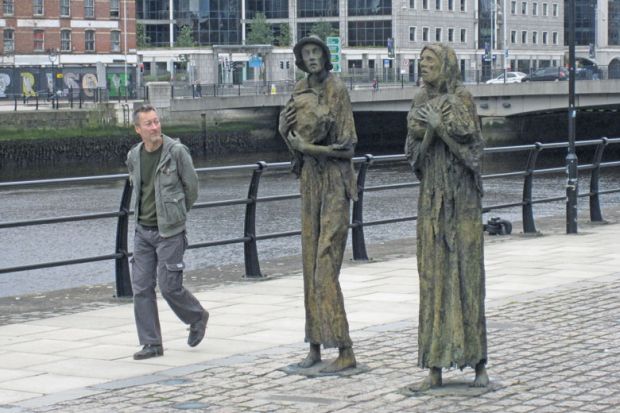PhD students across Ireland are tipped to take industrial action in a bid to force their conversion to staff status.
Doctoral candidates at Trinity College Dublin have made the first move, announcing that they are preparing to go on strike. “Workers’ rights and an employment-based model is the only way forward for postgraduate research programmes,” the Trinity branch of the Postgraduate Workers Organisation (PWO) said on X, formerly Twitter.
“We ask that Trinity College takes responsibility for the wellbeing of [the] college community and stand[s] for the rights and human dignity of their [postgraduate researchers].”
In an open letter to provost Linda Doyle and university governors, the Trinity branch said the organisation had distributed petitions, held mass protests and published open letters in an effort to enact change. “We would rather not have to strike, but are ultimately prepared to do,” the letter read.
Conor Reddy, president of the national Postgraduate Workers Organisation of Ireland, told Times Higher Education that the Trinity branch was likely to be the first of many PWO branches to strike.
“This will be a nationwide push towards escalating levels of collective action,” he said. The union was still deciding on a deadline for the university to respond, he added.
In 2023, Trinity raised stipends for its internally funded postgraduate schemes to €25,000 (£21,300), The Irish Times reported, impacting about 15 per cent of the university’s PhD population. After a national review into state support for PhD researchers advised that these stipends should also be increased to €25,000, the higher education minister, Simon Harris, announced that those funded by Science Foundation Ireland and the Irish Research Council would rise by €3,000, to €22,000.
Still, many postgraduate researchers are struggling financially on stipends lower than minimum wage, Mr Reddy said, amid a “dire housing crisis” stemming from soaring rents. “I think that absolutely saps the passion people have for pursuing PhD research, and careers in research after they finish,” he said.
Staff status would ensure that PhD researchers receive the national minimum wage, he said, as well as gaining access to parental and sick leave. Researchers from outside the European Union were particularly disadvantaged by student status, Mr Reddy noted, with increased tuition fees, mandatory health insurance and visa renewal costs all adding financial pressure.
PhD researchers’ student status causes Ireland to “lose talent, because the time spent doing a PhD doesn’t count towards residency or citizenship requirements”, Mr Reddy said. “Even universities are expressing their worries about recruitment of PhDs in Ireland, particularly international PhDs.
“A growing number of European countries are turning towards employment-based models for PhDs,” he continued. “If Trinity were to say it supported such a move, I think that would make a big difference on the national level.”
Countries including Denmark, the Netherlands, Norway and Sweden currently recognise PhD candidates as staff, while the University and College Union has called for similar practices to be adopted in the UK.
Last year, however, UK Research and Innovation said PhD candidates were “often best supported to pursue their ideas as students without an employment contract”.
A Trinity spokeswoman said that it had already made “a number of significant policy changes” relating to postgraduates, including introducing a plan for research students to take 30 days’ leave each year.
“Some of the concerns raised by the PWO are sectoral challenges and outside the control of individual institutions. Through the Irish Universities Association (IUA) and in partnership with other universities, we have advocated strongly for a resolution of challenges including payment to students on maternity leave,” the spokeswoman said.
“The IUA believes it essential that a national minimum PhD stipend level is set, and is working with government, and other stakeholders to achieve this.”




